News
We’re ready to pass PIB, say Lawan, Gbajabiamila
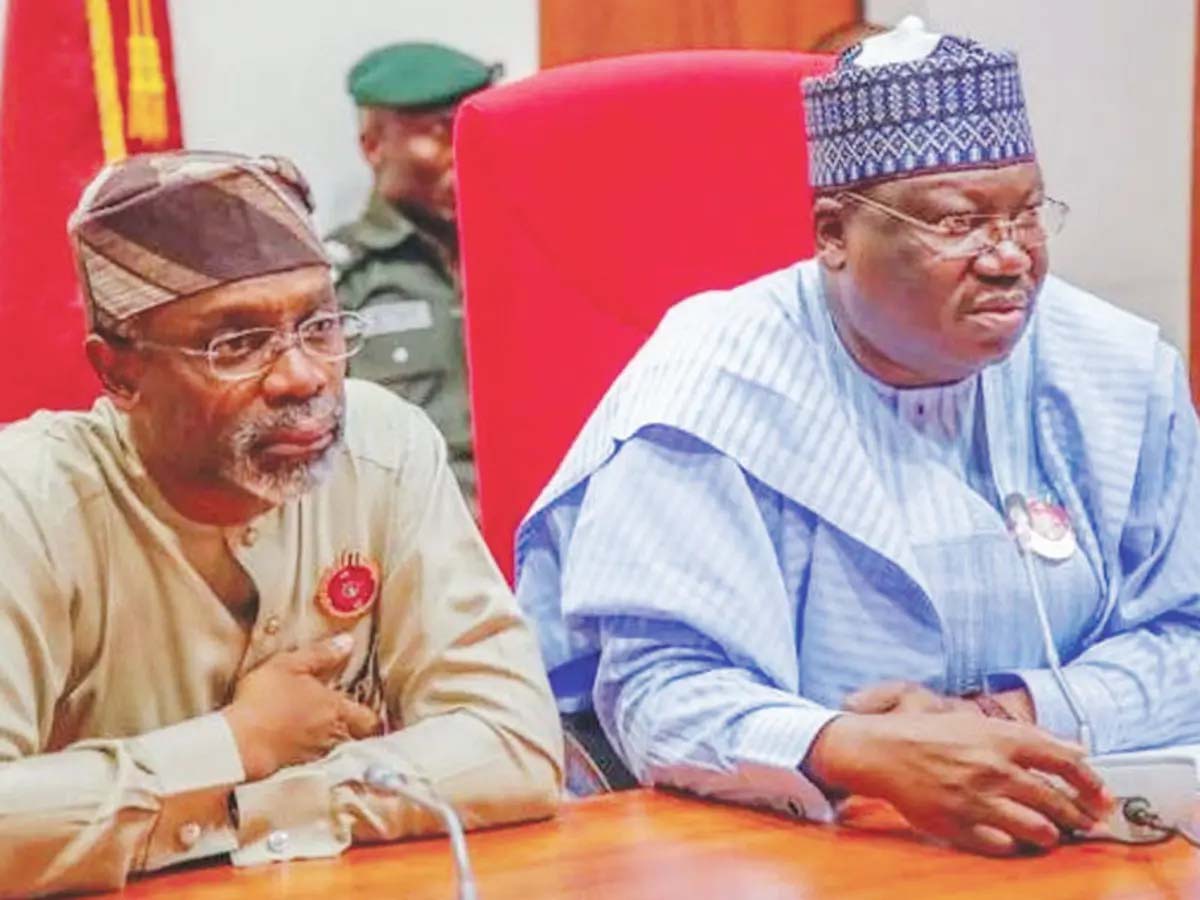
The leadership of the National Assembly said on Monday, 28 September, 2020 that the ninth Assembly would break the jinx of not being able to pass the Petroleum Industry Bill after several attempts.
The President of the Senate, Ahmad Lawan and the Speaker of the House of Representatives, Rt. Hon. Femi Gbajabiamila assured Nigerians that the time had come for the passage of the bill.
They spoke at a meeting of the leadership of the National Assembly with the Minister of State for Petroleum, Timipre Silva, Group Managing Director of the Nigerian National Petroleum Corporation (NNPC), Mele Kyari and some other top officials in the Petroleum sector.
The meeting was to brief the National Assembly leaders on the focus of the PIB which the Senate President confirmed was forwarded to the Assembly about two weeks ago.
The bill has not been read at the floor of either of the two chambers of the National Assembly because the federal lawmakers are currently on recess but will resume session on Tuesday.
“The PIB is said to be jinx actually for a long time. Probably from 2007 to 2019,” Lawan said in his opening remarks.
“It’s either the bill or bills were sponsored by the executive and not passed by the legislature as was the case in 2007, 2011 in the 6th and 7th Assembly.
“In the 8th Assembly, the legislature sponsored the bill, breaking it down to about three; it passed but there was no assent.
“Now the bill is an executive bill coming to the National Assembly. The two chambers promise that we will break that jinx.
“We want to see an oil industry in Nigeria that is properly regulated, an oil industry that not only sustains the investment that we have but attract even more investment, an oil industry that is very competitive.
“So the Ninth Assembly wants to work with you, have a very clear understanding of every provision so that, at the end of the day, we will break that jinx together with you and provide the oil industry a legislation that will make more effective and efficient at the end of the day,” Lawan said.
The Senate President said it was the first meeting between the Petroleum Ministry and other agencies with the leadership of the National Assembly to discuss the essence and focus of the bill.
“We are glad that the bill is now in the National Assembly even though not before the National Assembly.
“I imagine that by tomorrow(Tuesday) when the communication to the House, communication to the Senate will be read, then it will be before the two chambers of the National Assembly,” Lawan said. Gbajabiamila was also confident that the ninth National Assembly would break the jinx and pass the bill speedily.
“The bill has been long in the making for several years but I believe this is the session in which it will pass.
“We will pass this Bill speedily, however its passage will not sacrifice thoroughness. We will not sacrifice thoroughness on the alter of speed. Speed because it will be in the nation’s best interest.
“In the House of Representatives, we have assembled a crack team of legislators who are versed in the workings of the industry. It is an ad-hoc committee drawn from the House Commitees on Oil, Upstream, Downstream, Local Content and Gas.
“So there is a crack team that will be working with you as we are all trying to go to the same destination.
“Talking about passing it speedily, unfortunately it is coming at the time when it will be competing with the passage of the budget,” Gbajabiamila said.
The Speaker described the bill as “perhaps the most important piece of legislation that will come out from National Assembly in the lifetime of this government.
“It is a most important piece of legislation because we all know what oil represents in terms of our economy. Everyone has been waiting for the arrival of the PIB.
“That is the legislations that is on the lips of every Nigerian whether he knows anything about petroleum or not. It is the most popular and most common Bill. Everybody talks about PIB because oil represents the life wire of our state. That underscores the importance of this bill,” Gbajabiamila said.
News
Tinubu not telling Nigerians the truth, says Sule Lamido

Tinubu not telling Nigerians the truth, says Sule Lamido
President Bola Tinubu has been accused of not being forthright about the true state of Nigeria under his administration.
Former Jigawa State Governor and senior Peoples Democratic Party (PDP) member, Sule Lamido, made the accusation while speaking on the BBC Hausa programme Gane Mini Hanya.
Lamido criticized both Tinubu and former President Muhammadu Buhari for what he described as a lack of transparency in governance.
“Buhari’s and Tinubu’s governments are not being transparent with Nigerians unlike during the time when PDP was in power where everything was transparent and open to all Nigerians,” Lamido said.
READ ALSO:
- Odili: Fubara prevented Wike from turning Rivers to private estate
- Putin apologises over Azerbaijan plane crash reportedly shot down
- 256 terrorists, two logistics suppliers arrested in one week – DHQ
He accused the two administrations of relying on propaganda rather than providing citizens with accurate information.
Lamido also expressed concerns over President Tinubu’s recent loan requests, questioning the logic behind them. “If Nigerians are being told the truth then there is nothing wrong with that, but how would you budget N30tn, generate N50tn and then request loan when you have a surplus of N20tn,” he said, referencing last year’s budget.
He described the situation as “reckless” and “selfish,” adding, “This recklessness and clear-cut selfishness is not done anywhere in the world, but yet you find (some) Nigerians supporting it. Visit social media and see how APC is being criticised, being referred to as calamity, yet you find some protecting it.”
Tinubu not telling Nigerians the truth, says Sule Lamido
News
Nigeria Customs Service begins 2025 recruitment [How to apply]

Nigeria Customs Service begins 2025 recruitment [How to apply]
The Nigeria Customs Service (NCS) has announced the commencement of its recruitment exercise, assuring Nigerians that the process is entirely free and fair.
The agency has cautioned the public to be vigilant against scammers who may attempt to exploit unsuspecting applicants during the recruitment period.
Applications are invited for positions in the Superintendent, Inspector, and Customs Assistant cadres as part of the Service’s plan to recruit 3,927 officers in 2025.
This initiative is aimed at enhancing trade facilitation and supporting Nigeria’s economic recovery efforts.
“Our recruitment is entirely free and fair. At no stage do we charge fees. Anyone requesting payment is a scammer,” the agency emphasized, urging applicants to be wary of fraudulent schemes.
READ ALSO:
- Dangote, Tinubu, Lookman, Badenoch named among 100 most influential Africans in 2024
- Heavy security in Ilesa as ex-Osun deputy gov emerges new Owa-Obokun
- Hacker has stolen N180m from my NGO account – VeryDarkMan cries out
The NCS outlined eligibility criteria, stating that applicants must be Nigerian citizens by birth, possess a valid National Identification Number (NIN), and have no criminal record or ongoing investigations.
Academic qualifications for the three cadres are as follows:
Superintendent Cadre: A university degree or Higher National Diploma (HND) along with an NYSC discharge or exemption certificate.
Inspectorate Cadre: A National Diploma (ND) or Nigeria Certificate in Education (NCE) from an accredited institution.
Customs Assistant Cadre: At least an O’Level certificate (WAEC or NECO).
In addition to these qualifications, the NCS stressed that all applicants must be physically and mentally fit, providing evidence of medical fitness from a recognized government hospital.
Nigeria Customs Service begins 2025 recruitment [How to apply]
News
Tinubu to critics: I won’t reduce my cabinet size

Tinubu to critics: I won’t reduce my cabinet size
President Bola Tinubu on Monday unequivocally responded to critics who described his cabinet as “bloated” by saying he is unprepared to reduce the size of his 48-man cabinet.
“I am not ready to shrink” the size of my cabinet, Tinubu said during a media chat at his Bourdillon residence in the highbrow Ikoyi area of Lagos State.
“I am not prepared to bring down the size of my cabinet,” the former Lagos governor said, arguing that “efficiency” has been at the core of his selection of ministers.
The president also said he has no regret removing the petrol subsidy in May 2023, saying Nigeria cannot continue to be Father Christmas to neighbouring countries.
READ ALSO:
- Kolawole Erinle: Appeal court affirms sentence for ex-convict over $1.4m fraud
- We’ve forced Lakurawa terrorists back to Mali, says FG
- Petrol: MRS enforces N935 per litre nationwide
“I don’t have any regrets whatsoever in removing petrol subsidy. We are spending our future, we were just deceiving ourselves, that reform was necessary,” he told reporters.
Tinubu appointed 48 ministers in August 2023, three months after his inauguration. The Senate immediately screened and confirmed the ministers. One of the ministers, Betta Edu, was suspended in January while another, Simon Lalong, moved to the Senate.
There were calls for the President to reshuffle his cabinet as many Nigerians have not been impressed by the performance of some of the ministers, especially in the face of unprecedented inflation, excruciating economic situation and rising insecurity.
In October 2024, Tinubu re-assigned 10 ministers to new ministerial portfolios and appointed seven new ministers for Senate confirmation. He also sacked five of his ministers but critics insist that the President’s cabinet remains large, especially with the creation of a Livestock Ministry with a minister.
Tinubu to critics: I won’t reduce my cabinet size
-

 Auto2 days ago
Auto2 days agoLSM MD extols founder’s qualities after latter posthumous industry award
-

 Business3 days ago
Business3 days agoBe creative, monarch, others challenge Muslim professionals on economic revival
-

 Entertainment2 days ago
Entertainment2 days agoMultiChoice announces free access to all DSTV channels for 3 days
-

 metro3 days ago
metro3 days agoJigawa State governor loses son 24 hours after mother’s death
-

 News2 days ago
News2 days agoNigeria Customs Service begins 2025 recruitment [How to apply]
-

 metro2 days ago
metro2 days agoHeavy security in Ilesa as ex-Osun deputy gov emerges new Owa-Obokun
-

 metro2 days ago
metro2 days agoLagos Imam to Tinubu: You haven’t disappointed us
-

 metro2 days ago
metro2 days agoDangote, Tinubu, Lookman named among 100 most influential Africans in 2024 (Full list)



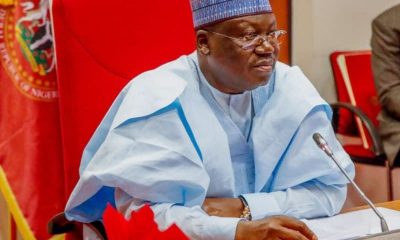

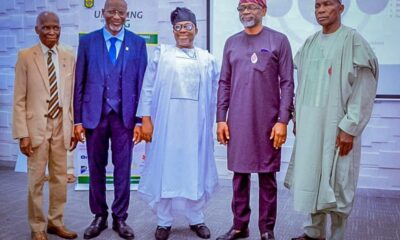

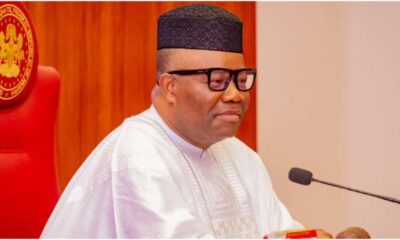

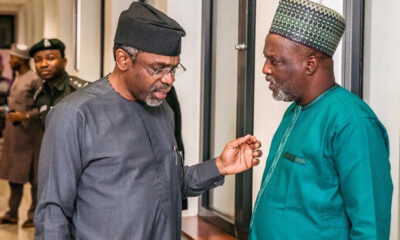


You must be logged in to post a comment Login